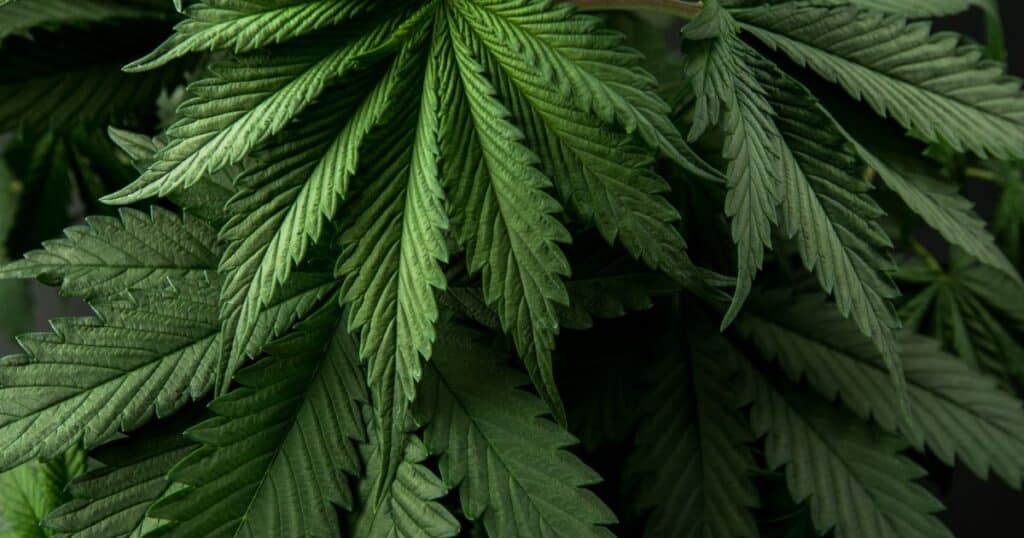As the fiercely debated topic of marijuana legalization sweeps through the United States, Kansas finds itself in a unique position. While neighboring states like Missouri have seen the green revolution as a flourishing market, Kansas remains entrenched in a legislative stalemate that has made it nearly impossible for citizens to push for change through the ballot. This is more than just a matter of social policy and personal freedom; it’s a conversation steeped in economics, public health, and the very fabric of democracy.

Why Kansas Lags Behind in Legalization
The current landscape of marijuana regulation in Kansas echoes a broader hesitation among some lawmakers in the state. Unlike about two dozen U.S. states, Kansas restricts its citizens’ ability to initiate a vote on new laws through a ballot initiative or referendum. This limitation significantly shifts the power to make legislative decisions into the hands of a few, potentially causing a disconnect between public sentiment and policy enactment.
As Kansans witness neighboring states such as Colorado and Missouri reap the benefits of marijuana tax revenue, the motivation for change is clear: it’s a matter of keeping economic resources within state lines and addressing the public demand for reform.
Yet, despite the growing sense of urgency, the process of shifting the Kansas cannabis narrative remains incredibly slow and predominantly influenced by Republican-controlled legislative bodies.
The Kansas Republican Stance on Marijuana Reform
For Kansas residents longing for marijuana reform, the path forward rests in the hands of state lawmakers, predominantly the Republican majority. The current hesitance and resistance within the GOP to bring marijuana legislation to the forefront stem from a complex web of concerns.
Top Republican leaders, like Senate President Ty Masterson, have been vocal about their opposition to the current wave of legalization proposals. Citing issues in states like Oklahoma, where regulatory controls are said to be lax and crime rates potentially tied to the industry surge, Masterson is cautious about crafting legislation that could open the floodgates without stringent controls in place.
“I can tell you the bill that’s in our committees right now is a non-starter,” Masterson said of Senate Bill 135, which was looking to regulate medical marijuana in Kansas; it was later tabled. “Part of that is you’ve seen the disaster in Oklahoma… with cash transactions for land… you’re seeing a lot of gang activity…”
“One of their drug enforcement people down there in their agency… he said 98% overgrown… he said 1.8% of their grow can fill every medical card… it’s not being sold as medicine… so, I think that harms the conversation, if you’re having a legitimate conversation,” Masterson said in a report by KSNT. “If you’re really talking about legitimate medicine… delivering somebody a treatment for something that’s a legitimate illness… that’s a different conversation than what we’ve had… I think what people see when they think of medical… they think of palliative care. I think there are a majority of people in favor of that.”
Public Advocacy and the Yearning for Change
On the other end of the spectrum, advocacy groups and concerned citizens continue to voice their support for marijuana reform. They point to the tax revenues filling the coffers in Missouri, the accessibility to medical aid thwarted by restrictions, and a growing body of evidence highlighting the failed war on drugs and the benefits of legalization.
Kelly Rippel, a cannabis/hemp advocate, underscored the overwhelming support from Kansas residents and implored lawmakers to align their actions with the expressed will of the people. The disparity between public opinion and legislative action casts a shadow over the democratic process and the principles of representative government.
“Missouri has made over 1.3… I think 1.5 billion dollars in 2023…,” said Rippel, co-founder of Kansans for Hemp, during an ACLU event. “We know that Kansas has to be a part of that… knowing that Johnson County and Wyandotte are bordering… and that’s where one of the largest populations of our state is.”
The fate of marijuana legalization in Kansas is deeply entwined with the philosophical undercurrent that steers the state’s body politics. As surrounding states embrace reform and the revenue it generates, the question for lawmakers in Kansas becomes not ‘if’ but ‘when’ and ‘how’ to navigate the changing landscape.
Masterson said he’s “open to the conversation.” However, he seems to be less open to taking up a constitutional amendment.
“What I’m open to is basically some type of pilot program or something that is controlled to the point that you can test it, but the horse isn’t out of the barn, and you can’t ever put it back in,” Masterson explained in an article by KSN. “Doing proposition or open vote in general, those usually come down to media campaigns, and there’s a lot of money involved, and the guy with the most money wins, so I think it’s more for the committee process.”
The progression towards a resolution hinges on open, informed discussions addressing concerns about potential reform’s scope and impact. Crafting comprehensive, well-structured regulations is pivotal in enhancing public safety and health and gaining the trust and support of those who hold the power to amend the laws.

Kansas stands at a crossroads, with its citizens on one path, eager for change and a seat at the legislative table, and its lawmakers on another, cautiously considering the uncharted territory of marijuana reform. The road to legalization is far from clear, but the conversation demands to be heard and understood.
In the coming years, the influence of public advocacy and a delicate approach to legislation may shift the conversation and the laws that govern cannabis in Kansas. For now, the sunflower state continues to watch, wait, and wonder—will 2024 mark the year it joins the ranks of its weed-welcoming neighbors, or will the current remain unchanged in its stance against the tide of public opinion?
Keep updated on all the latest news and updates in the Cannabis industry here at Beard Bros Pharms by signing up for our Friday Sesh Newsletter here. Always Dank and Never Spam!
- Texas Expands Medical Cannabis Access with House Bill 46
- MMJ BioPharma Cultivation vs. the DEA
- Poll Shows Americans Back States’ Right to Cannabis Reform
- Restaurant Spotlight: Pizzeria Due – Where Deep Dish Pizza Becomes a Chicago Rite of Passage
- Maryland Leads the Way in Cannabis Pardons, Setting an Example for Much-Needed Cannabis Reform
- Military Construction and Veterans Affairs Bill Amendments Could Change Medical Marijuana and MDMA-Assisted Therapy Options for Veterans















